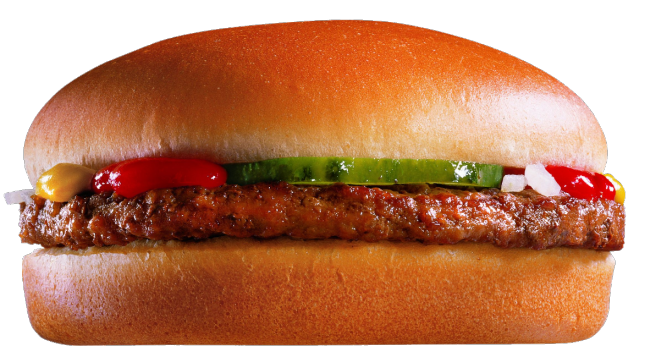 It seems like every couple of weeks, the internet generates a new meme designed to make fast food look bad. Don’t get me wrong, fast food does indeed come up with a lot of that itself, but the unfortunate part of many of these viral things is that they’re either outright wrong or based on bad science.
It seems like every couple of weeks, the internet generates a new meme designed to make fast food look bad. Don’t get me wrong, fast food does indeed come up with a lot of that itself, but the unfortunate part of many of these viral things is that they’re either outright wrong or based on bad science.
The latest is the McDonald’s hamburger that didn’t go bad, even after 14 years. David Whipple, a Utah man, made news this week after going public with his relatively ancient burger, which showed no signs of mold or rot even after being placed in a coat pocket - where it was forgotten about - for a few years.
“My wife didn’t discover it until at least a year or two after that. And we pulled it out and said, ‘Oh my gosh. I can’t believe it looks the same way,’” according to the UK’s Daily Mail. “It’s great for my grand-kids to see. To see what happens with fast food.”
The Daily Mail, being the bastion of correctness that it is, breathlessly reported about how the burger had no discernible change in colour or odor, and that the only noticeable difference - shock of shocks! - was that its pickle had disintegrated. A bunch of other news outlets followed the lead, with the general implication always being that such McBurgers don’t go bad because they’re full of chemicals, so of course they’re not good for you.
It’s too bad that few reporters have any understanding of even basic science, or who can’t be bothered to do a simple Google search.
For one thing, food generally needs two things to rot: moisture and air. This is why things that go in the freezer do not go bad: the moisture in them is frozen and thus rendered inert, with the lack of oxygen compounding the issue.
A McDonald’s patty is fried at very high temperatures and its bun is toasted, so it doesn’t start out with a lot of moisture. Like all food, it also continues to lose moisture when exposed to air through a basic process that scientists call - say it with me, Daily Mail - “evaporation.”
Here’s a fun experiment: try eating a plain McDonald’s hamburger - just the bun and meat. Tastes pretty non-descript, huh? That’s because it’s dry. Almost all of the flavour comes from the toppings: ketchup, pickles and onions. And as the report noted, guess which part decomposed? That’s right: the moisture-bearing pickle.
Secondly, the smaller something is, the less chance it has to grow mold. Smaller things simply evaporate their moisture quicker, thereby giving mold less time to form. McDonald’s regular hamburgers are pretty small, which is another reason they don’t rot.
J. Kenji López-Alt, who writes about food for Serious Eats, tested this whole mold thing a few years ago with an actual scientifically controlled experiment. He tracked decay in a McDonald’s burger alongside one of the chain’s larger Quarter Pounders, and against his own home-made, 100-per-cent pure creations for about month. “Not only did the regular McDonald’s burgers not rot, but the home-ground burgers did not rot either.” (Emphasis is his.)
López-Alt’s conclusion was that it shouldn’t be a surprise to anyone that McDonald’s burgers don’t rot, because any food bearing similar characteristics won’t either. “Humans have known about this phenomenon for thousands of years. After all, how do you think beef jerky is made?”

Marc Venot
April 26, 2013 at 12:18 am
If the patty was cooked rare or at least somehow still red inside it would rot but those who eat them put all emphasis on security, so the taste has to come from elsewhere and the habits of the customer.
Megan
April 26, 2013 at 11:34 am
Great article Pete, excellent points. As someone with a strong science education/background it drives me nuts when news report (and TV shows for that matter - CSI-type shows have totally skewed people’s perceptions of what goes on in reserach labs, it’s just not that exciting either ignore or oversimplfy the science to bend it to whatever message they are trying to spread. And it’s not like you need to be a scientist to understand some of this stuff (like you said, use Google!), but even if you did, aren’t they suppose to get experts to help them confirm their facts are right? Sigh.
either ignore or oversimplfy the science to bend it to whatever message they are trying to spread. And it’s not like you need to be a scientist to understand some of this stuff (like you said, use Google!), but even if you did, aren’t they suppose to get experts to help them confirm their facts are right? Sigh.